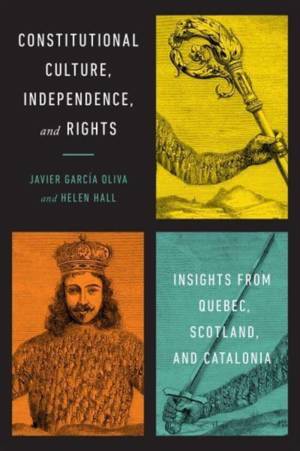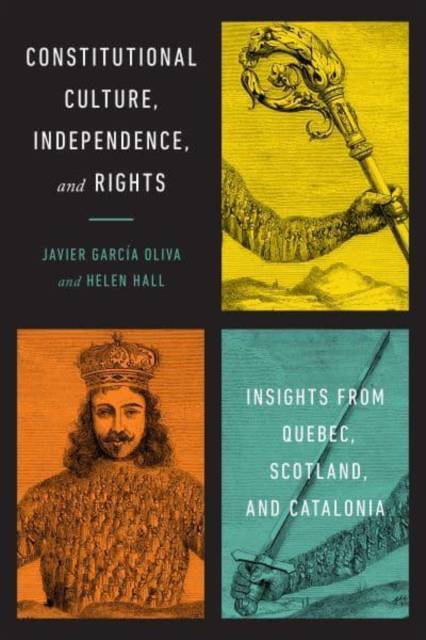
- Retrait gratuit dans votre magasin Club
- 7.000.000 titres dans notre catalogue
- Payer en toute sécurité
- Toujours un magasin près de chez vous
- Retrait gratuit dans votre magasin Club
- 7.000.000 titres dans notre catalogue
- Payer en toute sécurité
- Toujours un magasin près de chez vous
Constitutional Culture, Independence, and Rights
Insights from Quebec, Scotland, and Catalonia
Javier Garcia Oliva, Helen HallDescription
In Constitutional Culture, Independence, and Rights, Javier García Oliva and Helen Hall coin the term "constitutional culture" to encapsulate the collective rules and expectations that govern the collective life within a jurisdiction. Significantly, these shared norms have both legal and social elements, including matters as diverse as standards of parenting, the modus operandi of police officers, and taboos around sexuality. Using Quebec, Scotland, and Catalonia as case studies, the book delves into what these constitutional battles mean for the rights, identity, and needs of everyday people, and it powerfully demonstrates why the hypothetical future independence of these regions would have far-reaching practical consequences, beyond the realm of political structures and academic theory.
The book does not present a magic bullet to resolve debates around independence - this is not its purpose, and the text in fact demonstrates why there is no objectively optimal approach in any or all contexts. Instead, it seeks to shed light on aspects of these situations often overlooked in discussions around the fate of nations, and it addresses what the consequences of constitutional paradigm shifts might be for individuals. Constitutional culture is a complex web of interconnected understandings and behaviours, and the vibrations from shaking or cutting a fundamental strand will be felt throughout the structure.
Spécifications
Parties prenantes
- Auteur(s) :
- Editeur:
Contenu
- Nombre de pages :
- 354
- Langue:
- Anglais
Caractéristiques
- EAN:
- 9781487505486
- Date de parution :
- 30-05-23
- Format:
- Livre relié
- Format numérique:
- Genaaid
- Dimensions :
- 150 mm x 231 mm
- Poids :
- 616 g







